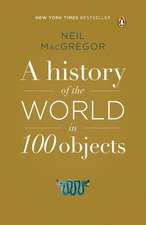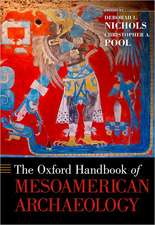The Islamic World in Ascendancy: From the Arab Conquests to the Siege of Vienna
Autor Martin Sickeren Limba Engleză Hardback – 29 iun 2000 – vârsta până la 17 ani
Preț: 438.59 lei
Preț vechi: 708.19 lei
-38% Nou
Puncte Express: 658
Preț estimativ în valută:
83.92€ • 87.86$ • 69.44£
83.92€ • 87.86$ • 69.44£
Carte tipărită la comandă
Livrare economică 07-21 aprilie
Preluare comenzi: 021 569.72.76
Specificații
ISBN-13: 9780275968922
ISBN-10: 0275968928
Pagini: 240
Ilustrații: black & white illustrations
Dimensiuni: 156 x 235 x 23 mm
Greutate: 0.56 kg
Ediția:New.
Editura: Bloomsbury Publishing
Colecția Praeger
Locul publicării:New York, United States
ISBN-10: 0275968928
Pagini: 240
Ilustrații: black & white illustrations
Dimensiuni: 156 x 235 x 23 mm
Greutate: 0.56 kg
Ediția:New.
Editura: Bloomsbury Publishing
Colecția Praeger
Locul publicării:New York, United States
Notă biografică
MARTIN SICKER is a private consultant and lecturer who has served as a senior executive in the U.S. government and has taught political science at American University and George Washington University. Dr. Sicker has written extensively in the fields of political science and international affairs, with a special focus on the Middle East. He is the author of twelve previous books, including a companion volume in his multi-volume history of the Middle East, The Pre-Islamic Middle East (Praeger, 2000).
Cuprins
IntroductionEmpire of the QuraishThe Umayyad EmpireThe Abbasid EmpireAbbasid Decline and Imperial DisintegrationThe Rise of the SeljukidsThe Period of the First CrusadesThe Era of the ZengidsSaladin and the Ayyubid EmpireThe Eary Thirteenth CenturyThe Mongol OnslaughtBetween Mamluks and MongolsThe Rise of the OttomansThe Era of Murad and BayezidTamerlaneEnd of the Byzantine EmpireMehmed the ConquerorThe Rise of the SafavidsOttoman Expansionism under SelimThe Era of Suleiman the MagnificentThe End of Islamic AscendancyBibliography











